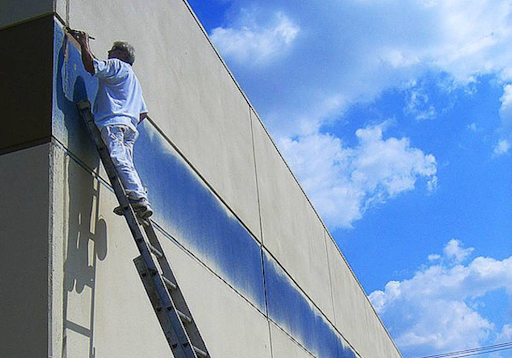Selecting a reliable commercial painting contractor is crucial for the successful execution of any commercial painting project. The right contractor not only ensures a high-quality finish but also contributes to the project’s overall efficiency and timely completion. This article outlines key considerations to help you choose a dependable commercial painting contractor.
Understanding Commercial Painting
Commercial painting involves more than just applying a fresh coat of paint. It encompasses a range of services, including surface preparation, priming, and finishing, tailored specifically for commercial spaces. These projects often involve larger scales and more complex requirements compared to residential painting. Understanding the unique aspects of commercial painting can guide you in selecting a contractor who is well-versed in handling such projects.
1. Experience and Expertise
One of the primary considerations when choosing a commercial painting contractor is their experience and expertise. An experienced contractor is more likely to handle unforeseen challenges effectively and deliver superior results.
- Track Record: Review the contractor’s portfolio to assess their past projects. Look for examples of work that resemble your project in scale and complexity.
- Specialization: Ensure the contractor has experience specifically in commercial painting. The techniques and materials used for commercial spaces can differ significantly from those used in residential projects.
2. Licensing and Insurance
Verifying that the contractor is properly licensed and insured is essential for protecting yourself and your property.
- Licensing: A valid license demonstrates that the contractor meets local regulations and industry standards. Check with your local licensing authority to confirm the contractor’s credentials.
- Insurance: Adequate insurance coverage, including liability and worker’s compensation, protects you from potential damages and accidents that may occur during the project. Request proof of insurance and verify its validity.
3. Reputation and References
A contractor’s reputation and past client feedback can provide valuable insights into their reliability and quality of work.
- References: Ask the contractor for references from previous clients. Contact these references to inquire about their experiences, the quality of work, and whether the project was completed on time and within budget.
- Online Reviews: Check online reviews and ratings on platforms like Google and Yelp. While individual reviews should be taken with caution, consistent patterns in feedback can indicate the contractor’s overall performance.
4. Detailed Written Estimate
A detailed written estimate is a critical aspect of selecting a commercial painting contractor. It outlines the scope of work, materials to be used, and the overall cost.
- Scope of Work: Ensure the estimate includes a comprehensive description of the work to be performed, including surface preparation, priming, and finishing.
- Materials and Products: The estimate should specify the types of paints and materials to be used. This ensures that you’re getting high-quality products that meet your expectations.
- Cost Breakdown: A clear cost breakdown helps you understand what you’re paying for and avoids unexpected charges. Compare estimates from multiple contractors to gauge a fair price.
5. Project Timeline and Scheduling
The contractor’s ability to adhere to a timeline is crucial for minimizing disruption to your business operations.
- Timeline: Discuss the project timeline in detail. Ensure the contractor provides a realistic completion date and is prepared to accommodate any potential delays.
- Scheduling: Consider the contractor’s scheduling flexibility and availability. A contractor who can work around your business hours may minimize disruptions.
6. Communication and Professionalism
Effective communication and professionalism are essential for a smooth project experience.
- Communication: Choose a contractor who communicates clearly and promptly. They should be responsive to your questions and provide regular updates on the project’s progress.
- Professionalism: Evaluate the contractor’s professionalism through their interactions with you, their presentation, and their attention to detail. A professional contractor will demonstrate a commitment to quality and customer satisfaction.
7. Warranty and Aftercare
A reputable contractor should offer a warranty on their work to ensure longevity and address any potential issues.
- Warranty: Inquire about the warranty terms and conditions. A reliable contractor will provide a warranty that covers both workmanship and materials.
- Aftercare: Discuss any aftercare services offered, such as touch-ups or maintenance recommendations. This ensures that your commercial space remains in optimal condition long after the project is completed.
Conclusion
Choosing a reliable commercial painting contractor involves careful consideration of their experience, licensing, reputation, and the specifics of their proposal. By focusing on these key factors, you can ensure that your commercial painting project is executed efficiently and to a high standard. Prioritize contractors who demonstrate professionalism, clear communication, and a commitment to quality to achieve the best results for your commercial space.

